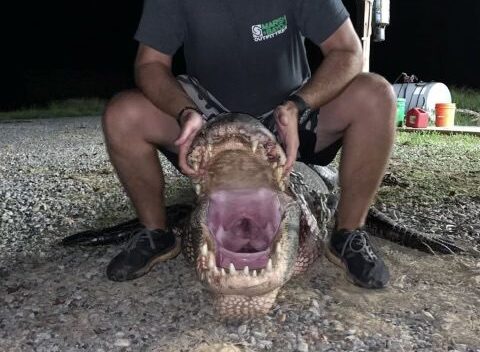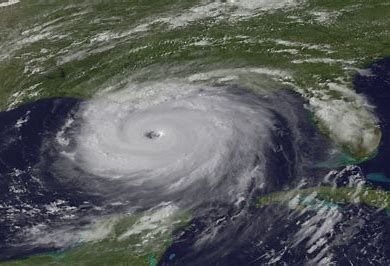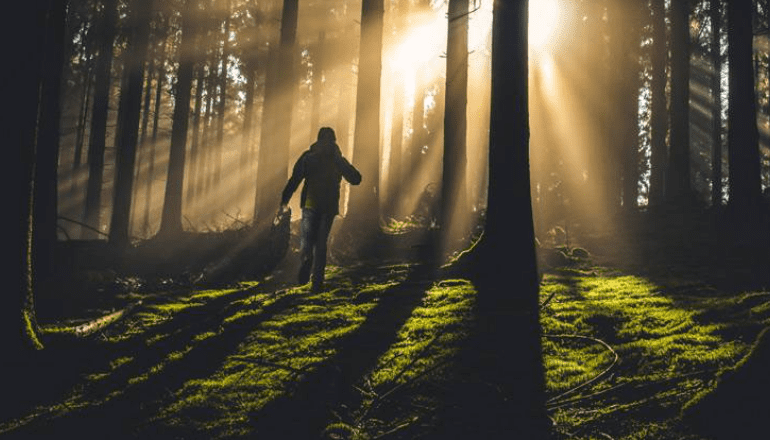
- Outdoor columnist Ben Smith talks sharks and alligators. He says the difference between the two is that alligators are delicious.
Summer is here and more and more people are taking vacations and getting outdoors. On the one hand, this is a good thing. On the other hand, it also comes with the presumption that there will be incidents involving wildlife. Most of you have probably seen the recent news regarding the shark attacks in Florida. While this is horrible and I wish a speedy recovery to the victims, sharks might not be the greatest threat to your summer outdoor ventures.
In 2023, there were thirty-six unprovoked shark attacks in the United States, two of which were fatal. I had to look up the difference in provoked vs unprovoked because I was a little cloudy on how one provokes a shark to attack them. Unprovoked was classified as a bite on humans while in the shark’s natural habitat with no provocation of the shark. Provoked was classified as humans initiating some sort of interaction with a shark. This could be divers being bitten after harassing or trying to touch a shark, bites when trying to feed a shark, bits that occur when trying to remove fishing lures from a shark, and bites on spearfishermen. Most of those I understood, but lumping spearfishermen in there seems wrong. I know enough of those guys to know they aren’t trying to shoot a shark while in the water unless they feel threatened.
While two fatalities is two too many, the odds of being bitten by a shark, much less killed by one, are few and far between. It’s estimated that around sixty million people in the United States will swim in the ocean at some point each year. If my math is accurate, that leaves you with a 0.0000006% chance of being bitten by a shark. The odds of you being killed in a car wreck on the way to the beach are much higher. I’m not claiming that you should be ignorant and go wading into the gulf with dead fish tied around your waist. Sharks obviously live in salt water, and you should be aware of that, but there’s no sense in being in a constant state of worry. Mathematically it just doesn’t make sense.
Of the two shark related fatalities in the United States last year, both occurred in the Pacific Ocean (one in California and one in Hawaii). That brings me to my next point: sharks aren’t the species of wildlife that you should be most concerned about this summer in the South. There’s another apex predator lurking in the Southeast that was responsible for more deaths in 2023 than sharks. Alligators were responsible for three fatalities in the United States last year, and all three were in Florida and South Carolina.
This doesn’t come as a surprise to me because we probably come into more contact with alligators in the South than we do sharks. We live on land, they live on land, it’s inevitable that our paths are going to cross from time to time. When I lived in Florida as a kid, one of the first things you learned was if there’s water, there’s also an alligator. I think the same can be said for most of Mississippi and all of Louisiana. You’re much safer swimming in the gulf than you are in a small pond, or lake, in the South.
We are also more comfortable around alligators than we are sharks, and we shouldn’t be. We see them in ponds around our homes and in lakes where we fish and boat. If you’re like me, you probably live by the “don’t bother it and it won’t bother you” mantra. This is probably not wise. If an alligator sees you as an easy meal, it will absolutely bother you whether you provoke it or not. Given the nature of alligators looking for an easy meal, it’s also not wise to have any pets around water where there are alligators present. Two of the three fatalities from 2023 were a result of the victims walking their dogs near lakes that contained alligators, and over the last ten years almost half of the victims were walking their dogs when attacked.
We also tend to think of alligators as slow-moving creatures. They are not. Sure, they tire easily on land, and you could probably outrun one given enough distance between you at the beginning. However, they have very quick first steps and can snatch an unsuspecting human before getting the chance to run. What about outswimming an alligator? Forget it. Michael Phelps is without question the greatest swimmer of all time. He reached 8.8 mph wearing a monofin. Alligators can reach speeds up to 20 mph in the water. All of that said, with the amount of contact that humans have with alligators throughout the year the odds of being attacked by one are ridiculously slim. Never zero, but slim.
Perhaps the greatest difference between sharks and alligators is that alligators are delicious. Not so much the big ones, they are a little tough and chewy. But the smaller ones, particularly in that six to seven foot range are really good to eat. And that reminds me, the MDWFP recently opened the application process (which will be closed by the time this is released). Over nine hundred permits will be given out in the next few weeks for lucky applicants across the state. Hampered by recent events, this will be one of the few seasons that I did not apply for tags. Hopefully, a friend, or two, will get drawn and let me tag along for the fun. In the meantime, go enjoy your summer at the beach, or on the lake, and don’t worry too much about what’s lurking beneath.











